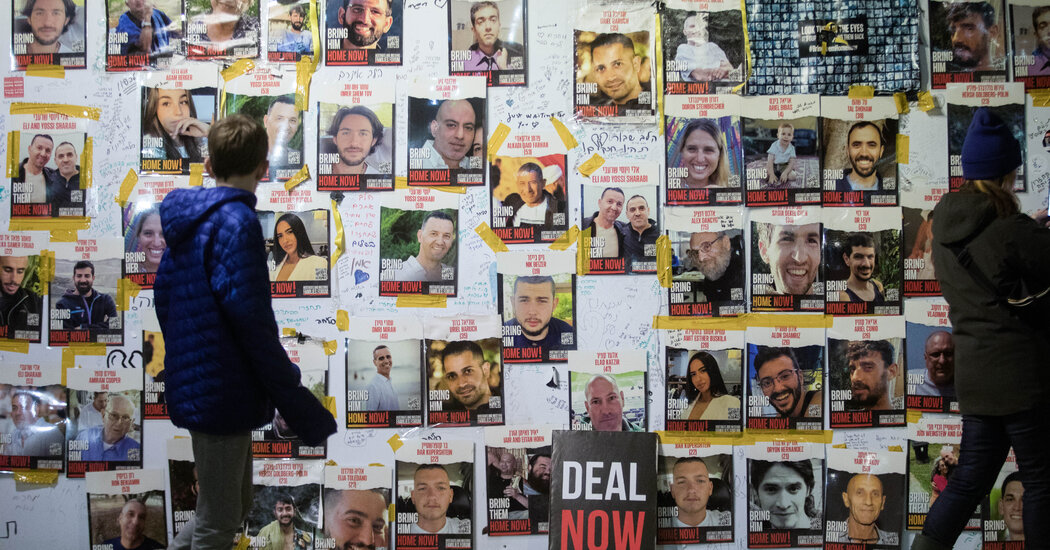[ad_1]
American-led negotiators are edging closer to an agreement in which Israel would suspend its war in Gaza for about two months in exchange for the release of more than 100 hostages still held by Hamas, a deal that could be sealed in the next two weeks and will be the subject of talks in Paris on Sunday.
Negotiators have developed a written draft agreement merging proposals offered by Israel and Hamas in the last 10 days into a basic framework that, if accepted, would transform the conflict consuming the region. While there are still important disagreements to be worked out, negotiators are cautiously optimistic that a final accord is within reach, according to U.S. officials who insisted on anonymity to discuss sensitive talks.
President Biden spoke by phone separately Friday with the leaders of Egypt and Qatar, who have served as intermediaries with Hamas, to narrow the remaining differences. He is also sending his C.I.A. director, William J. Burns, to Paris for Sunday’s talks with Israeli, Egyptian and Qatari officials. If Mr. Burns makes enough progress, Mr. Biden may then send his Middle East coordinator, Brett McGurk, who just returned to Washington, back to the region to help finalize the agreement.
In a statement in Israel on Saturday, Prime Minister Benjamin Netanyahu reaffirmed his commitment to securing the release of those hostages who were not freed as part of a more limited agreement in November. “As of today, we have returned 110 of our hostages and we are committed to returning all of them home,” he said. “We are dealing with this and we are doing so around the clock, including now.”
The hostages have been in captivity since Oct. 7, when Hamas gunmen stormed into Israel and killed an estimated 1,200 people and seized about 240 more in the worst terrorist attack in the country’s history. Israel’s military retaliation since then has killed more than 25,000 people, most of them women and children, according to Gaza’s Health Ministry. It is not clear how many of those killed in Gaza were Hamas combatants.
A new deal could also de-escalate the volatile situation in the broader Middle East. During the seven-day pause in November, other Iranian proxy groups like the Houthis and Hezbollah also held back on the low-level attacks they had been mounting against American, Israeli and other targets.
[ad_2]
Source link

